Litopia Writers’ Reading List 2024

Peter Cox, founder of Litopia
I asked our members a simple question.
Which books have had the most profound impact on your development as a writer?
Here’s what they told me. A glorious cornucopia of more than forty definitive titles that ought to be on your reading list.
And note: if you buy them all (why not?) it will still be cheaper than taking one average-priced commercial writing course.
We’ve all enjoyed putting this list together, and we hope you get as much out of it as we have.
Peter Cox
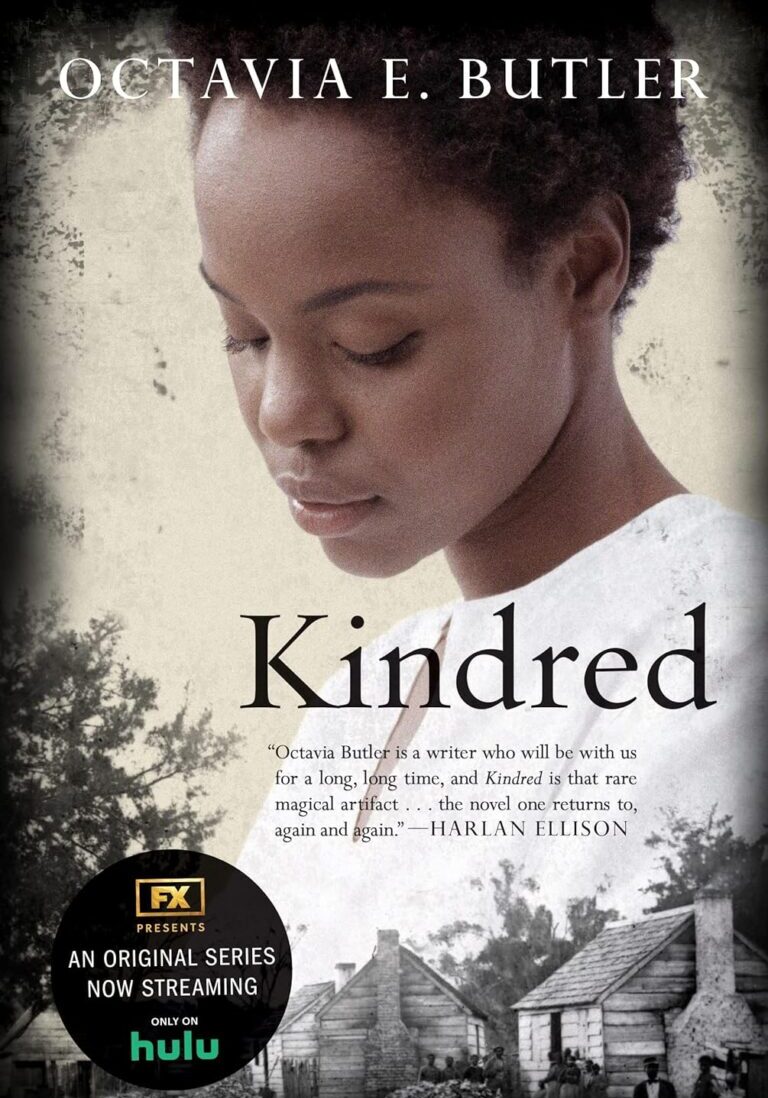
Kindred by Octavia Butler
Our Summary
Despite being written 45 years ago, it feels like a modern work. It’s at once Sci-Fi, Fantasy, Speculative, and even Literary. Everything a writer needs to know about sparse and impactful prose can be found in these pages.
What I Learned From It
Pithy writing has power. Take a look at the first paragraph…
“I lost an arm on my last trip home. My left arm.”
We don’t know why Dana lost her left arm - or where she was when it happened. However, most of us would keep on reading to find out.
The minimalist approach doesn’t end with the hook. Throughout the novel, the writing is direct and matter-of-fact. There’s no purple prose to distract the reader.
Butler's worldbuilding is likewise utilitarian. She sets the stage with everything we need to know, and little else. If something more is needed to move a scene forward, she’ll drop it in later so readers aren't overwhelmed.
There is brutality in this world, and Kindred doesn’t shy away from it. Slavery in the US was a cruel business. Still, she conveys the humiliation and suffering of human bondage with an economy of words. There’s no need for intricate detail.
There’s also no need to explain why slavery is wrong. Butler trusts her readers enough not to lecture them.
The author falls into a common conceit of the era - chapter titles. However, she doesn’t abuse that conceit. Each title is short and to the point with neither wit nor irony. There are no spoilers, either. The meanings are clear upon finishing a respective chapter.
Kindred has both a prologue and an epilogue. Few books need one, and even fewer need both. However, this story demands both. There is nothing extraneous about their inclusion here. Unlike many novels, neither feels bolted on to the main narrative. The prologue hooks the reader while the epilogue provides the necessary denouement.
Not everyone agrees Kindred is Science Fiction. If it’s not, there's a lot here for Sci-Fi readers (including myself) to like. If it is Science Fiction, the characters and dialogue are much more realistic than most contemporary works.
Most importantly - this book remains relevant to readers and authors alike.
Bloo✒️
[maxbutton id="1" url="https://amzn.to/3sNpDvv" ]
[maxbutton id="2" url="https://amzn.to/3MY4VQc" ]
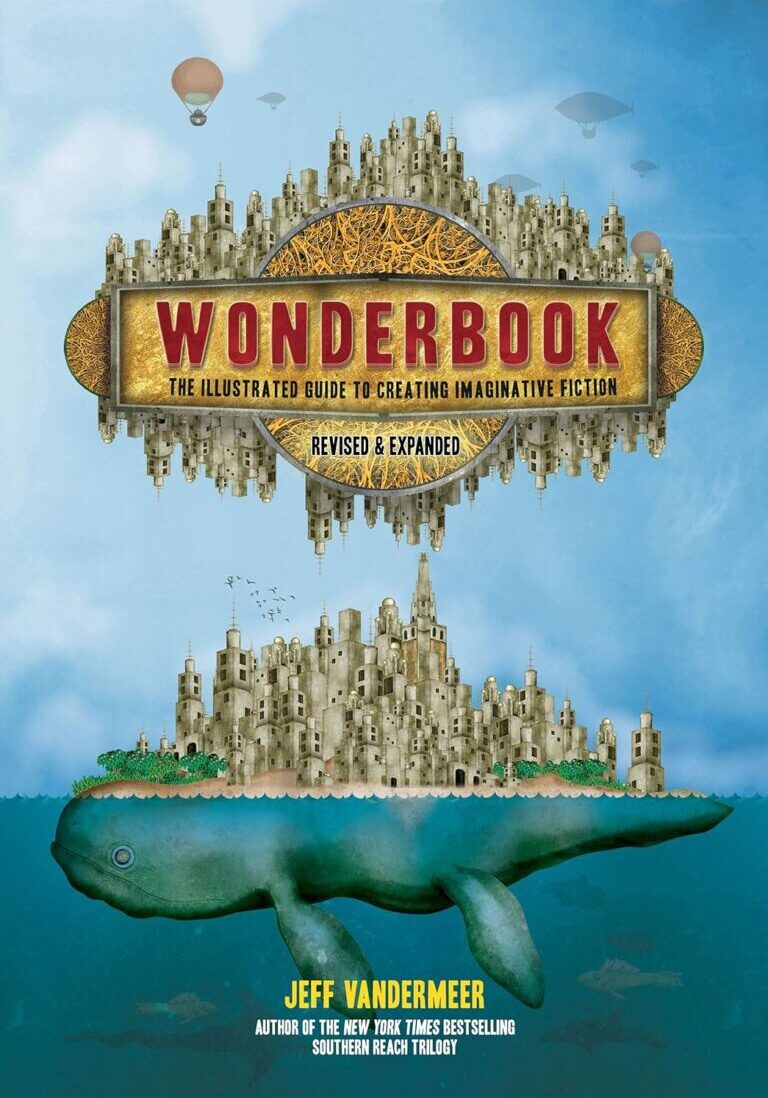
Wonderbook (The Illistrated Guide To Creating Imaginative Fiction) by Jeff Vandermeer
Our Summary
For genre lovers. Practical information on plotting, structure, characterization, dialogue, exposition, worldbuilding, and POV while packed with exquisite and imaginative visuals. This is a beautiful, wild, and crazy book with contributions from various well loved authors like Neil Gaiman, Ursula K. Le Guin, George R. R. Martin and others. Dense and rich and wonderful.
What I learned From It
It encouraged me to not just embrace my imagination, but to push it as far as it will possibly go.
LJ Beck
[maxbutton id="1" url="https://amzn.to/46vjh1z" ]
[maxbutton id="2" url="https://amzn.to/3RbbhOH" ]
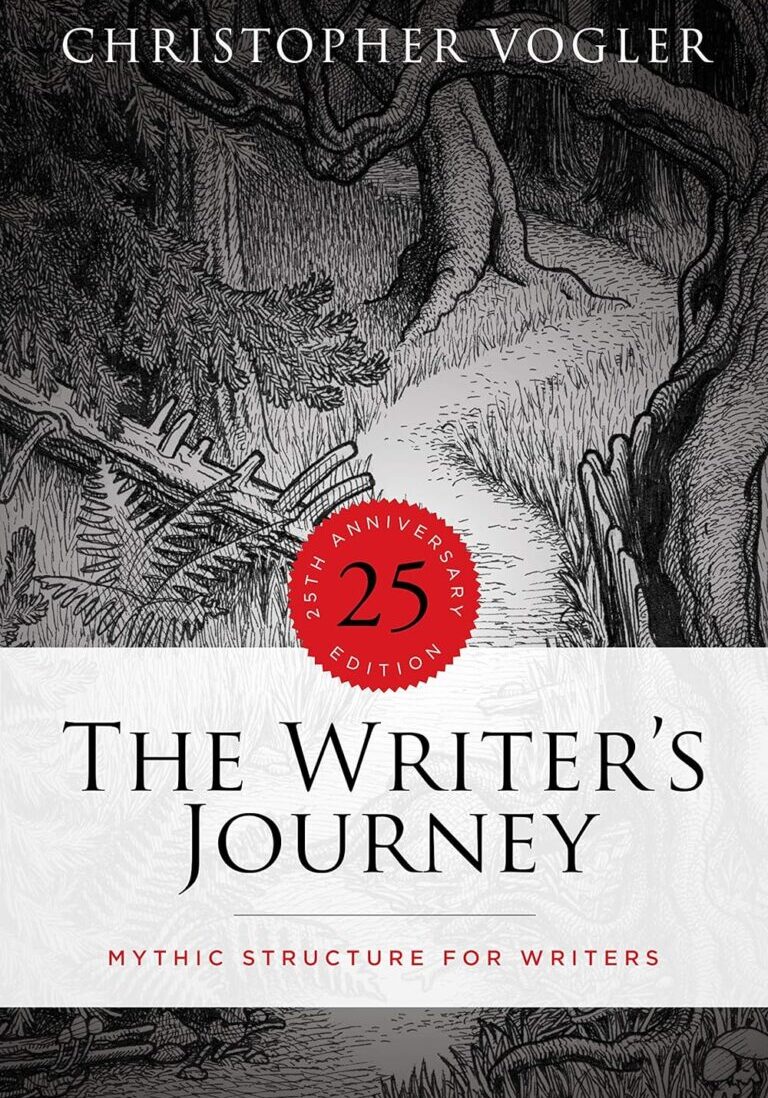
The Writer’s Journey by Christopher Vogler
Our Summary
This is Hollywood story consultant Vogler's distillation of Campbell's The Hero With A Thousand Faces. That is, it's a book on comparative mythology turned into a writing manual about the "Hero's Journey".
What I learned From It
See description in previous post of Campbell's The Hero With A Thousand Faces.
Rich.
[maxbutton id="1" url="https://amzn.to/40Qh7by" ]
[maxbutton id="2" url="https://amzn.to/3QQsziQ" ]
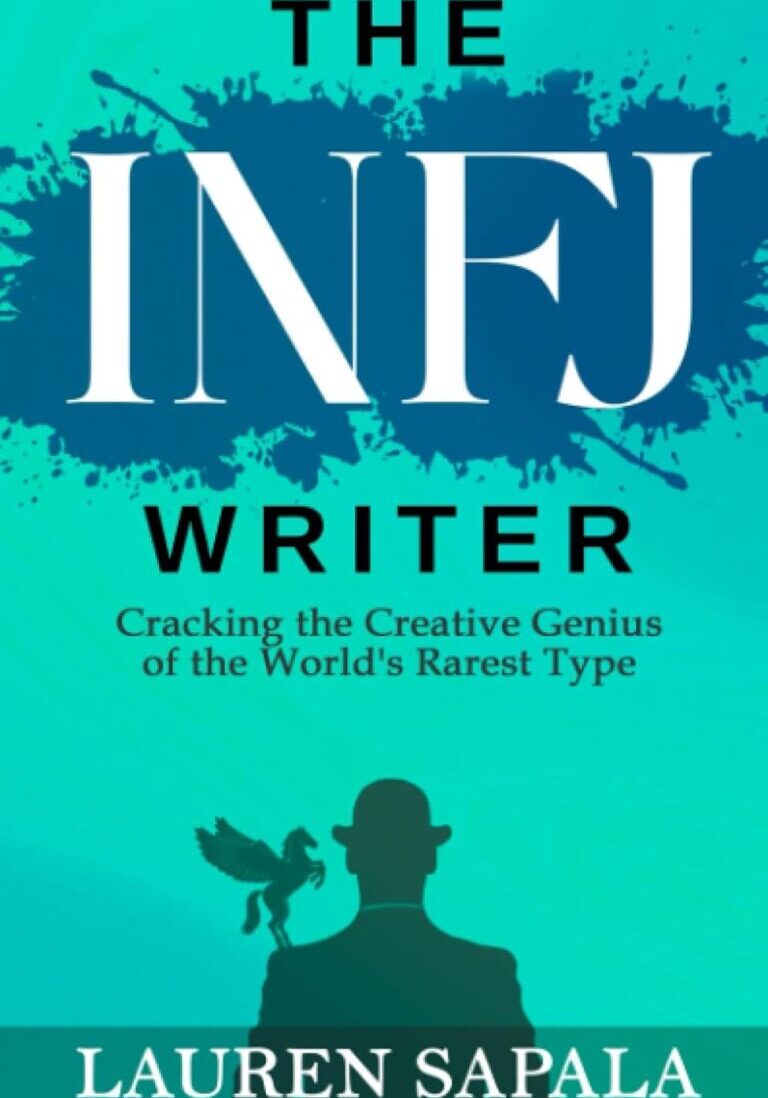
The INFJ Writer by Lauren Sapala
Our Summary
Writing (and living) advice for people whose brains don't work well with logic, plotting etc. Another perspective! (The letters refer to Myers-Briggs type personality indicators, which aren't flawless, but broadly if you tend to be led more by feelings and intuitive reasoning, this might work for you).
What I Learned From It
I'd been getting super snarled up trying to follow advice that just didn't work for me in practice, even though I could see it made theoretical sense. This book gave me a bit of space to trust myself to learn my own process. I've still got a long way to go but I do a lot less bashing my head against a brick wall these days. Sharing it in case anyone else is in the same boat!
Josephine
[maxbutton id="1" url="https://amzn.to/3sI74J9" ]
[maxbutton id="2" url="https://amzn.to/40RToaZ" ]
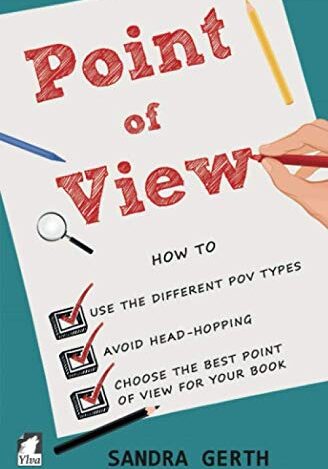
Point Of View by Sandra Gerth
Our Summary
A clear, informative guide to the different types of POV with tips on choosing the best POV for your own manuscript. Offers exercises focused either on your work in progress or on a published book.
What I learned From It
I saw how to mix some POV, how and why to avoid head-hopping and picked up tips on internal monologue.
Jeanette
[maxbutton id="1" url="https://amzn.to/3GcXzol" ]
[maxbutton id="2" url="https://amzn.to/3sMdJSx" ]
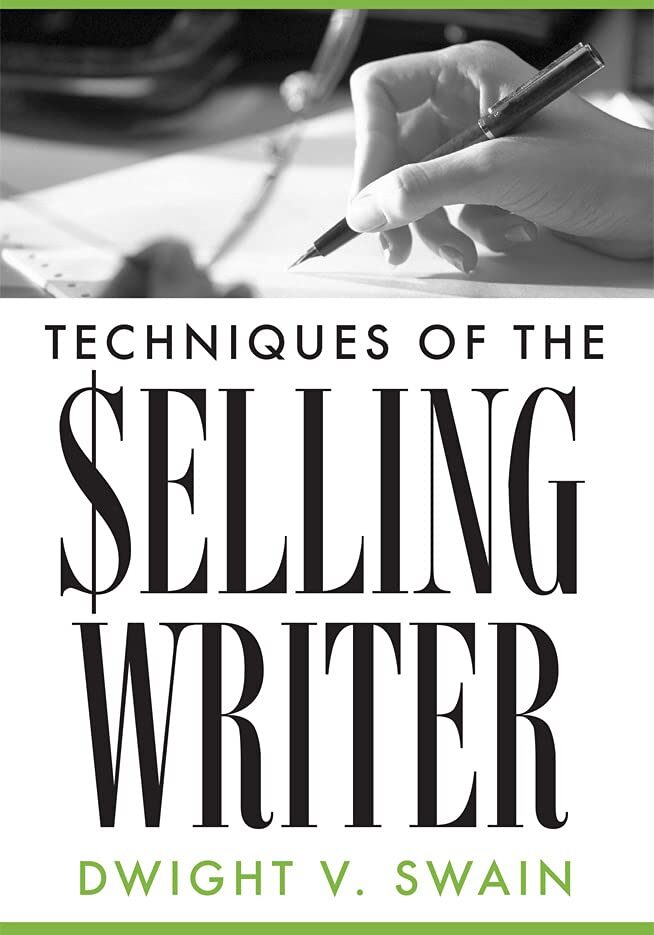
Techniques Of The Selling Writer by Dwight V. Swain
Our Summary
First published in 1965, Swain's book is a no-nonsense, broad-brush instruction manual for beginners that shows you how to construct a commercial story.
What I learned From It
The basic shape of commercial fiction (and how unchanging that shape has been for more than half a century). Every other writing manual I've ever read has felt like a retelling or offshoot of this book.
Rich.
[maxbutton id="1" url="https://amzn.to/47nnrtN" ]
[maxbutton id="2" url="https://amzn.to/49MnEbr" ]
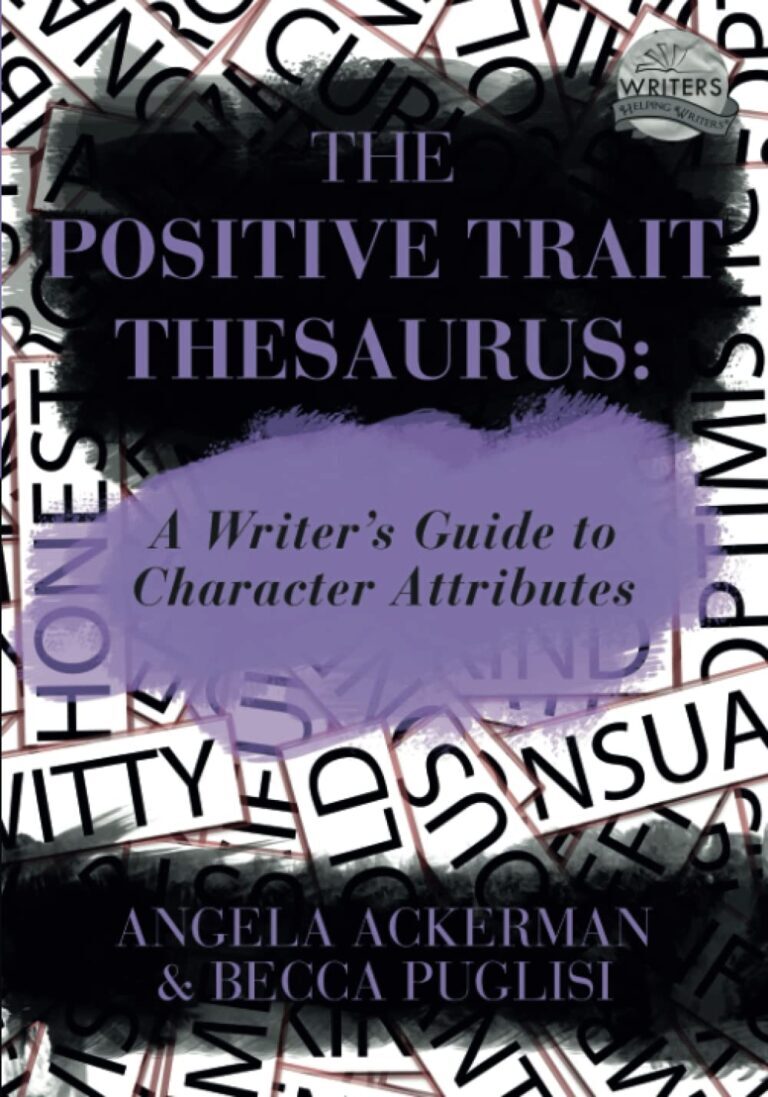
The Positive Trait Thesaurus by Angela Ackerman And Becca Puglisi
Our Summary
Lists character traits to help you generate different types of characters and how these traits might manifest. Useful in conjunction with The Negative Trait Thesaurus by the same authors.
What I learned From It
Helped me to write characters with more depth and think of a wider range of character types for my books.
Claire G
[maxbutton id="1" url="https://amzn.to/46vt085" ]
[maxbutton id="2" url="https://amzn.to/3sLx3iK" ]
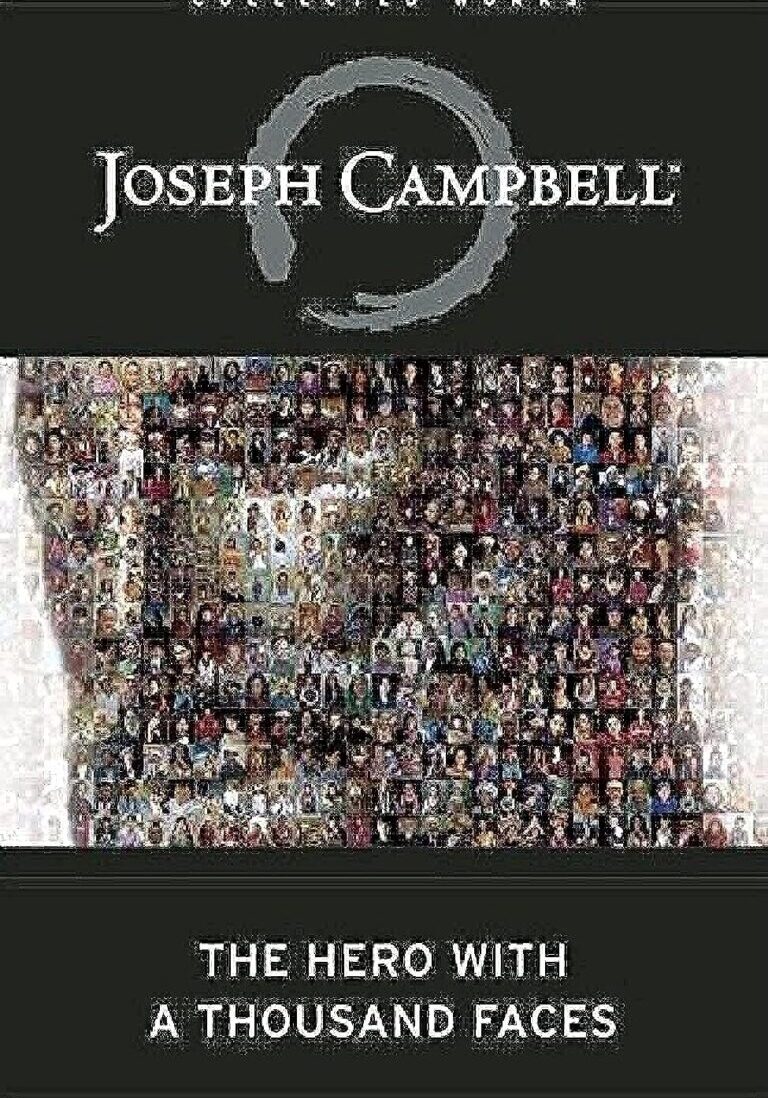
The Hero With A Thousand Faces by Joseph Campbell
Our Summary
First published in 1949, this dense, sometimes impenetrable, and somewhat controversial book on comparative mythology takes a tour through world folklore to tease out common themes and archetypes.
What I learned From It
What George Lucas was thinking when he wrote Star Wars. If you want to understand Hollywood's obsession with this mode of storytelling, you should read this book. If you've heard other writers talk/evangelize/fret about the "Hero's Journey" and you're not exactly sure what they're talking about, you should read this book. If you have even the most passing interest in commercial Western storytelling, you should read this book. Also see "The Writer's Journey" by Christopher Vogler.
Rich.
[maxbutton id="1" url="https://amzn.to/3MSV5PG" ]
[maxbutton id="2" url="https://amzn.to/46uzOTx" ]
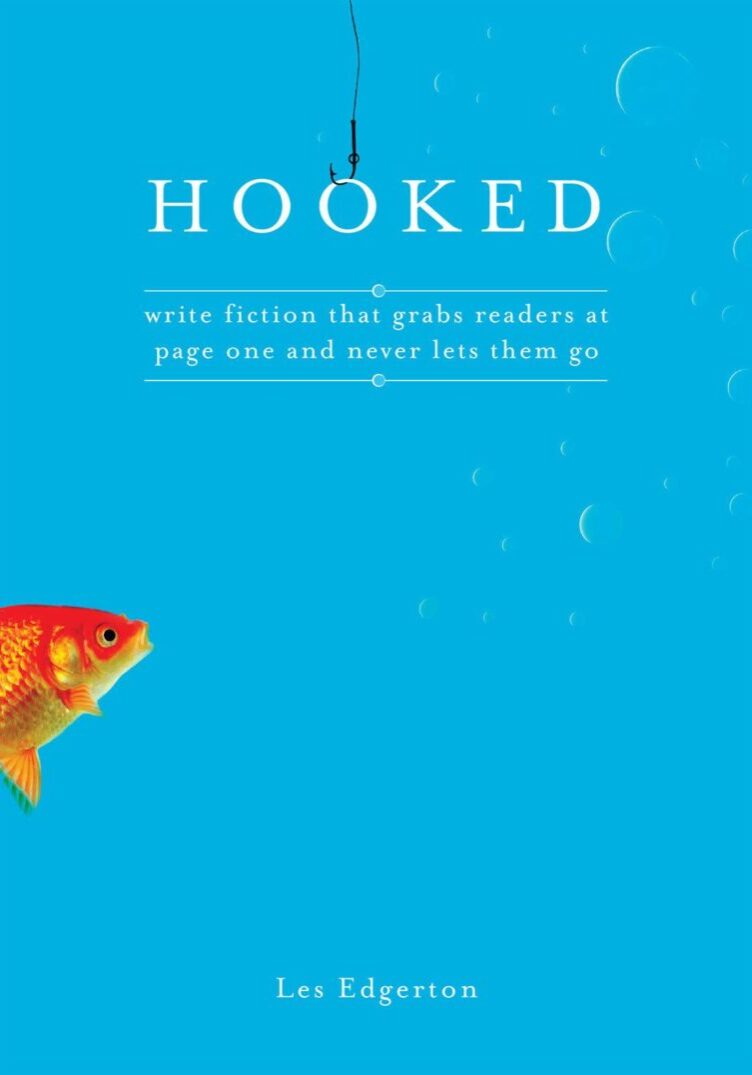
Hooked by Les Edgerton
Our Summary
The focus is on great openings and keeping the reader hooked including advice on this from agents and acquiring editors.
What I learned From It
Lots about inciting incidents; balancing backstory in the set up; keeping readers going from one chapter to the next.
Trey
[maxbutton id="1" url="https://amzn.to/3N0OH95" ]
[maxbutton id="2" url="https://amzn.to/3MXZgJY" ]
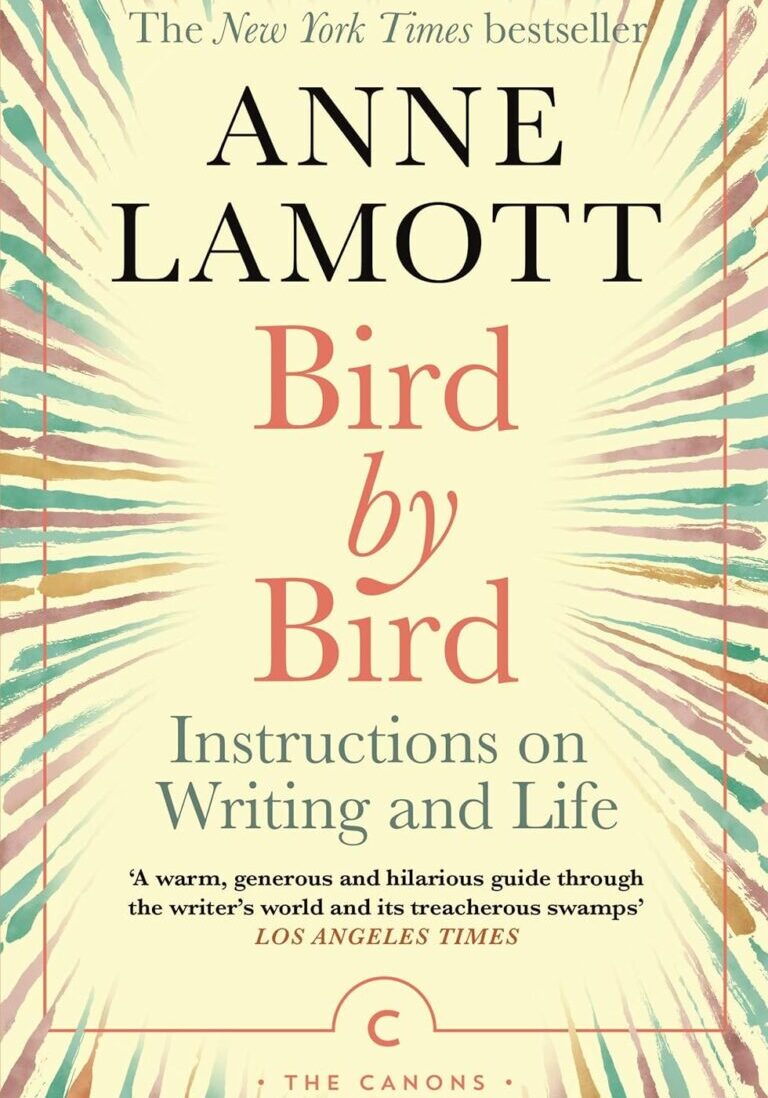
Bird by Bird by Anne Lamott
Our Summary
Down to earth advice, not so much about the craft per se as the practice (and pitfalls) of "being a writer".
What I learned From It
I'm actually still reading it, but so far I've got lots of encouragement from it. Her style is super informal and she has a wonderful dry wit, it's like a brilliant chat in the pub with someone who really knows their shit and you go away thinking, "yeah, I really can do this..."
Josephine
[maxbutton id="1" url="https://amzn.to/3Gdt2a0" ]
[maxbutton id="2" url="https://amzn.to/40Ytcf2" ]
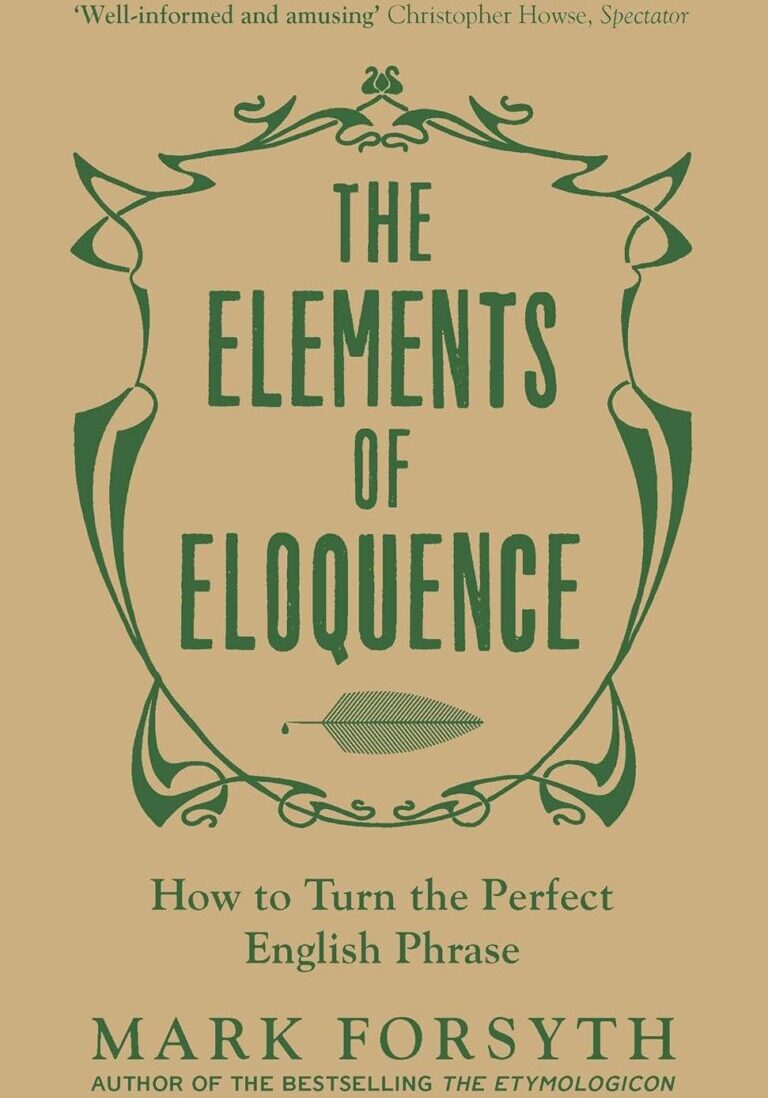
The Elements Of Eloquence: Secrets Of The Perfect Turn Of Phrase by Mark Forsyth
Our Summary
This is a book with a clear message (from the blurb): In an age unhealthily obsessed with the power of substance, this is a book that highlights the importance of style.
What I learned From It
About thirty chapters each dedicated to a rhetorical figure. The book is a fun read and has plenty of examples from The Bible, Shakespeare and Tupac ( "Money don't make the man, but man I'm making money")
JohnBertel
[maxbutton id="1" url="https://amzn.to/49IxFXf" ]
[maxbutton id="2" url="https://amzn.to/49MyLB7" ]
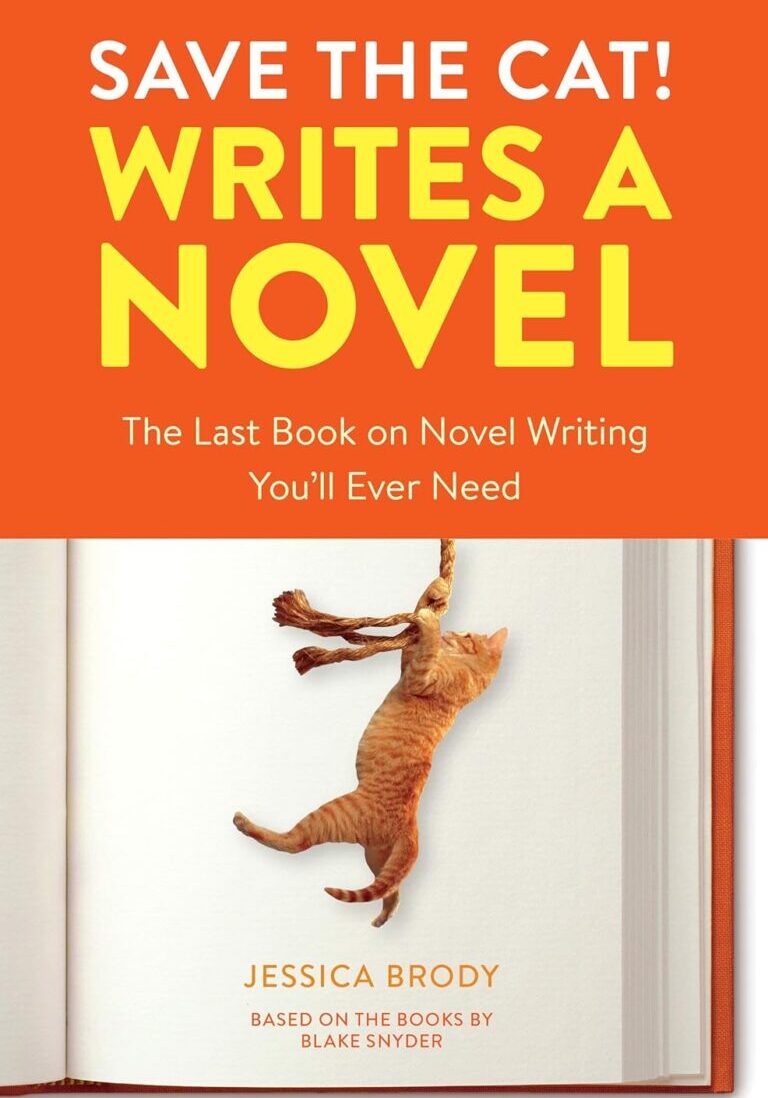
Save the Cat Writes a Novel by Jessica Brody
Our Summary
Great for understanding genre, theme, 3 act structure. Very well explained. Lots of examples of story beats from popular books. Even looks at pitches and loglines.
What I Learned From It
I found the famous beat sheet really helpful in deciding when to do what in my novel. The biggest thing for me was understanding structure enough to keep those pages turning
Hannah F
[maxbutton id="1" url="https://amzn.to/49PDjqw" ]
[maxbutton id="2" url="https://amzn.to/47HLROc" ]
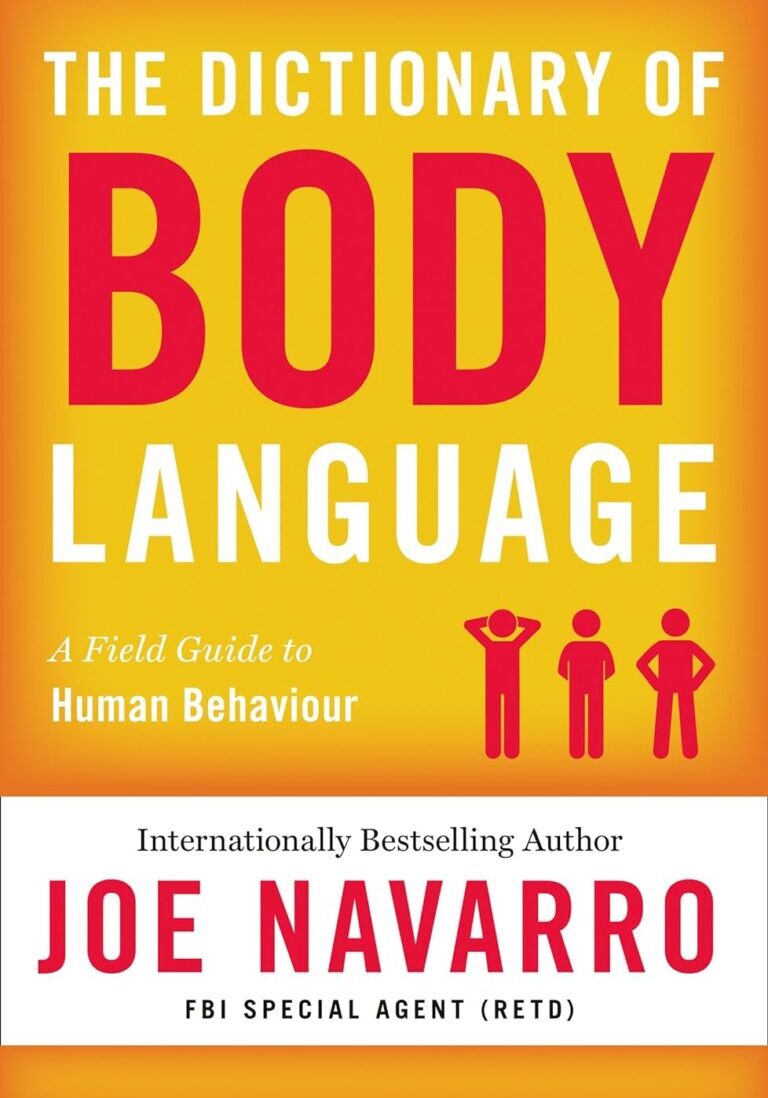
The Dictionary Of Body Language by Joe Navarro
Our Summary
Not a writing book per say, but an invaluable text for writers. That is, it's dictionary structure means you can flick to a section and read about a specific body part you want to write about and read authentic body language positions/movements, etc. for each character. For example, you might might want to write about a character's eye, head, hand, etc. movement, the text allows you to learn authentic, non-cliched body language. Written by a ex-FBI agent, it is easy to read and invaluable for adding layers of authentic 'show' to characters. Works well with Navarro's first book What Every Body is Saying (a more detailed account of body language with illustrations).
What I learned From It
Genuine body language that can be adapted to different characters for accurate emotion and thus characterisation. Rather than relying on the usual cliches in body language for characters, this book elevates and authenticates body language, movement, and thus emotion that 'shows' rather than 'tells' the reader in a believable manner. Easy to use both via the chapter headings and the detailed index to research each different part of the body. This is one book I would not be without as a writer.
Rachael Burnett
[maxbutton id="1" url="https://amzn.to/47FXKVv" ]
[maxbutton id="2" url="https://amzn.to/3RmatXH" ]
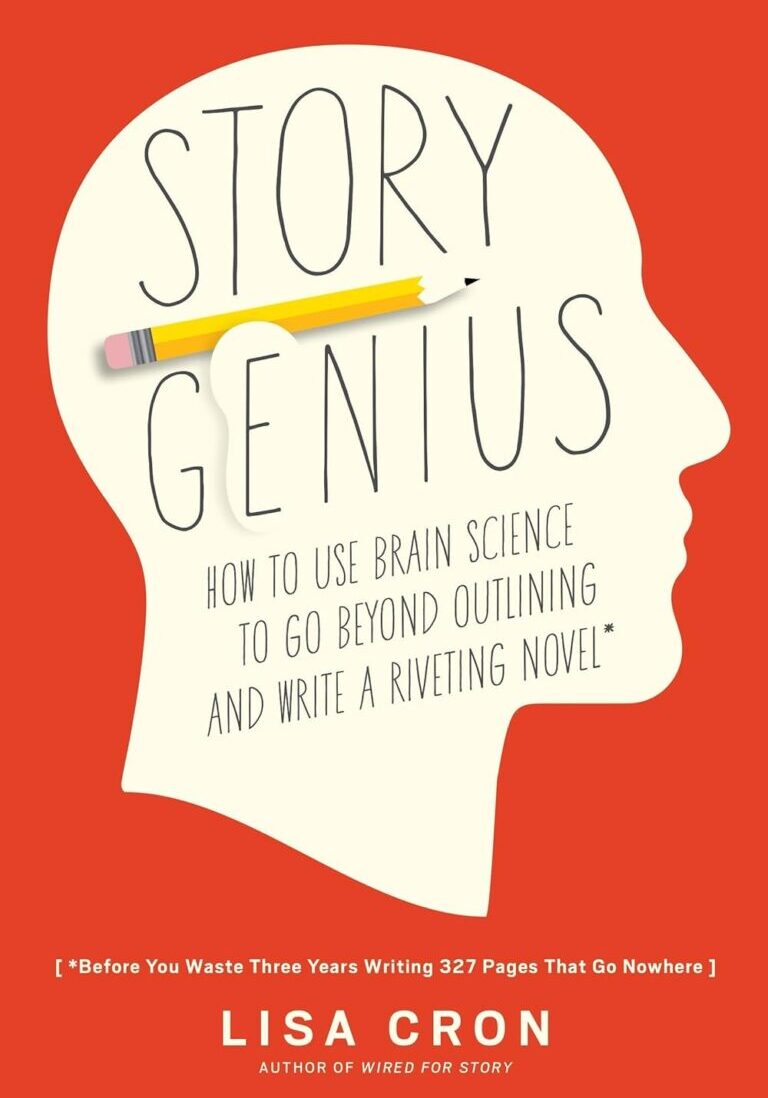
Story Genius by Lisa Cron
Our Summary
It’s every novelist’s greatest fear: pouring their blood, sweat, and tears into writing hundreds of pages only to realize that their story has no sense of urgency, no internal logic, and so is a page one rewrite.
What I learned From It
The prevailing wisdom in the writing community is that there are just two ways around this problem: pantsing (winging it) and plotting (focusing on the external plot). Story coach Lisa Cron has spent her career discovering why these methods don’t work and coming up with a powerful alternative, based on the science behind what our brains are wired to crave in every story we read (and it’s not what you think).
AnnieSummerlee
[maxbutton id="1" url="https://amzn.to/40SCokV" ]
[maxbutton id="2" url="https://amzn.to/3Rm3AFP" ]
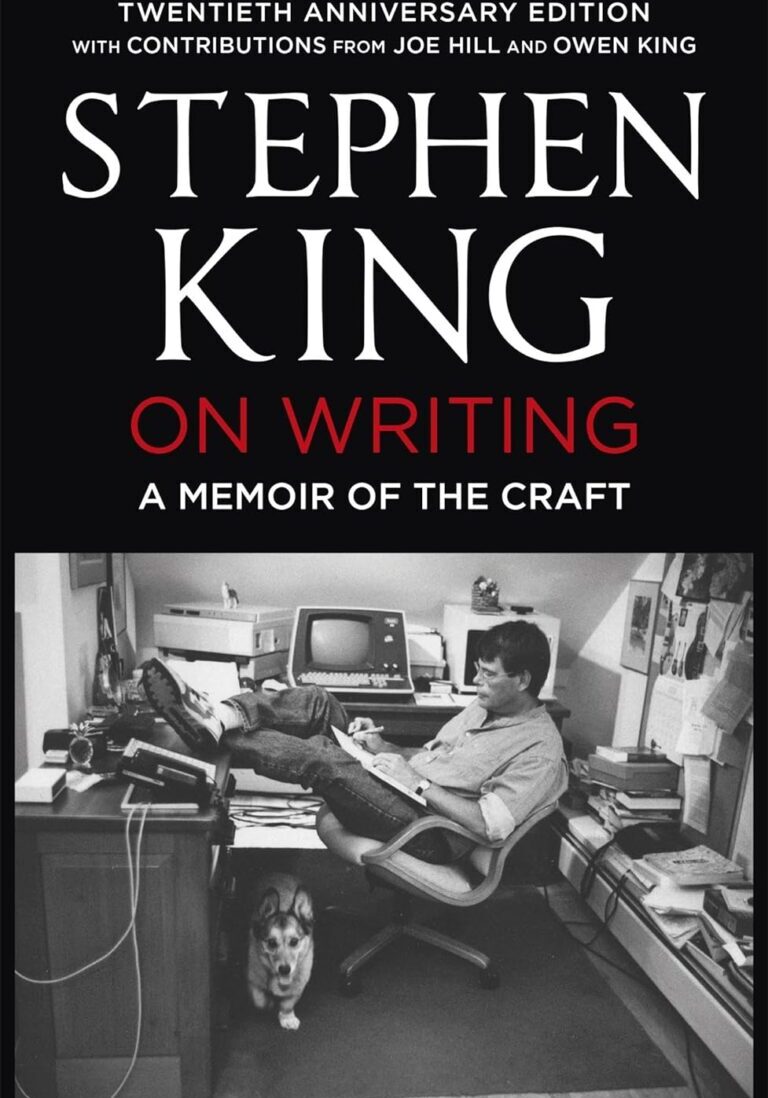
On Writing by Stephen King
Our Summary
Leave it to the literary rock star to compose a craft book that’s as entertaining as a good novel. “This is a short book because most books about writing are filled with bullshit,” King writes. What follows is a witty, practical, and sometimes poignant guide that is refreshingly devoid of the aforementioned BS. King relates his personal story of becoming a writer, then offers a “toolkit” of clear advice about everything from dialogue and descriptive passages to revisions and the head game. And there’s more: tips for beginning writers on submitting work for publication, a mark-up of one of King’s own manuscripts, and a reading list. You might not be awake at 3 a.m. turning these pages, but we promise On Writing will open your eyes to essential tricks of the trade.
What I learned From It
Just write a story readers will read.
James Charles
[maxbutton id="1" url="https://amzn.to/3MVOW5m" ]
[maxbutton id="2" url="https://amzn.to/46IadGV" ]
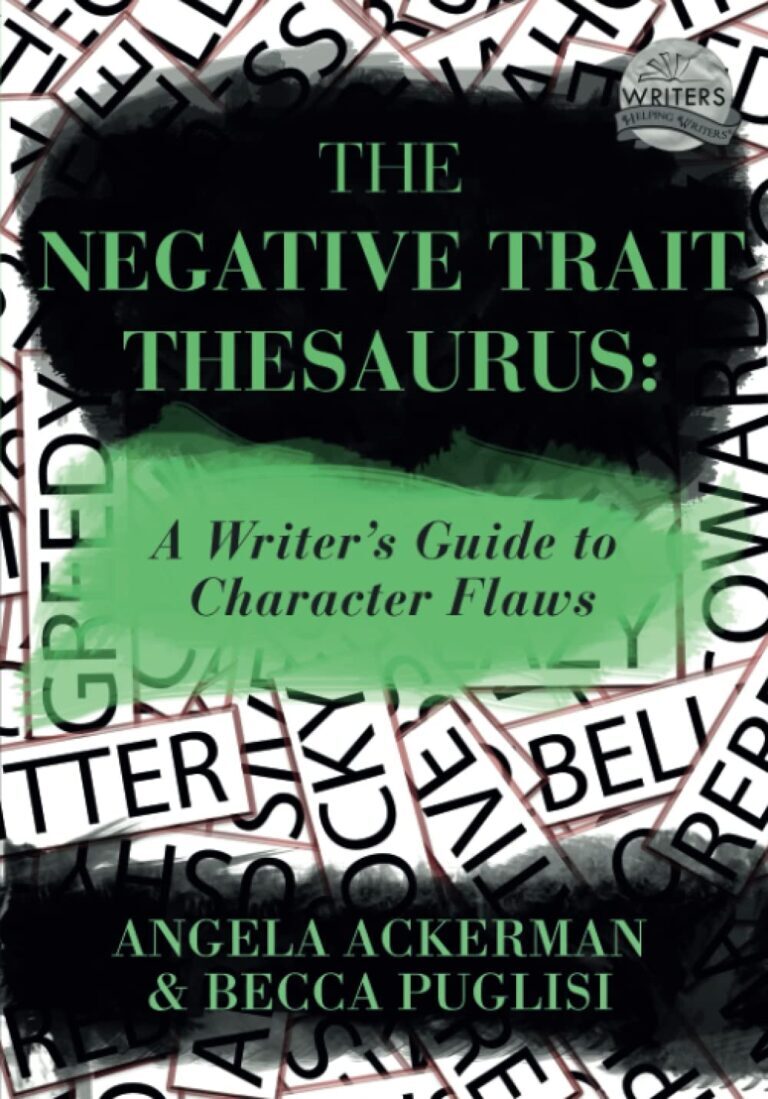
The Negative Trait Thesaurus by Angela Ackerman And Becca Puglisi
Our Summary
Lists character traits to help you generate different types of characters and how these traits might manifest. Useful in conjunction with The Positive Trait Thesaurus.
What I learned From It
Helped me to write characters with more depth and think of a wider range of character types for my books.
Claire G
[maxbutton id="1" url="https://amzn.to/40TfObY" ]
[maxbutton id="2" url="https://amzn.to/3sLiNGQ" ]
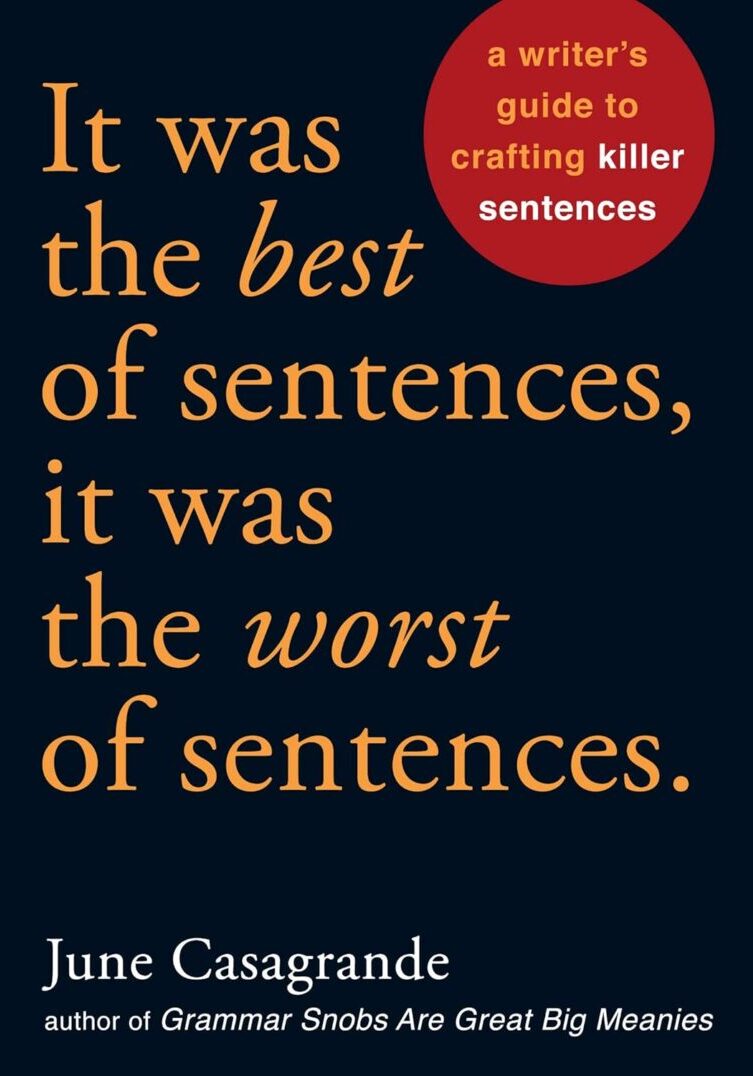
It Was The Best Of Sentences, It Was The Worst Of Sentences by June Casagrande
Our Summary
Gets into the line level of sentences and what order you need to put words so you can help a reader follow what you put down on paper (or computer). From phrases, clauses, subordination, long v short sentences tense, tense, prepositional phrases, danglers and much more. Perfect for reacquainting yourself with the nuts and bolts of grammar.
What I learned From It
I learnt how to consider what order words need to be in, and how writing them out of order confuses the reader. Now every sentence I construct considers the reader first.
RK Wallis
[maxbutton id="1" url="https://amzn.to/3Rcg02K" ]
[maxbutton id="2" url="https://amzn.to/3GaoP6S" ]
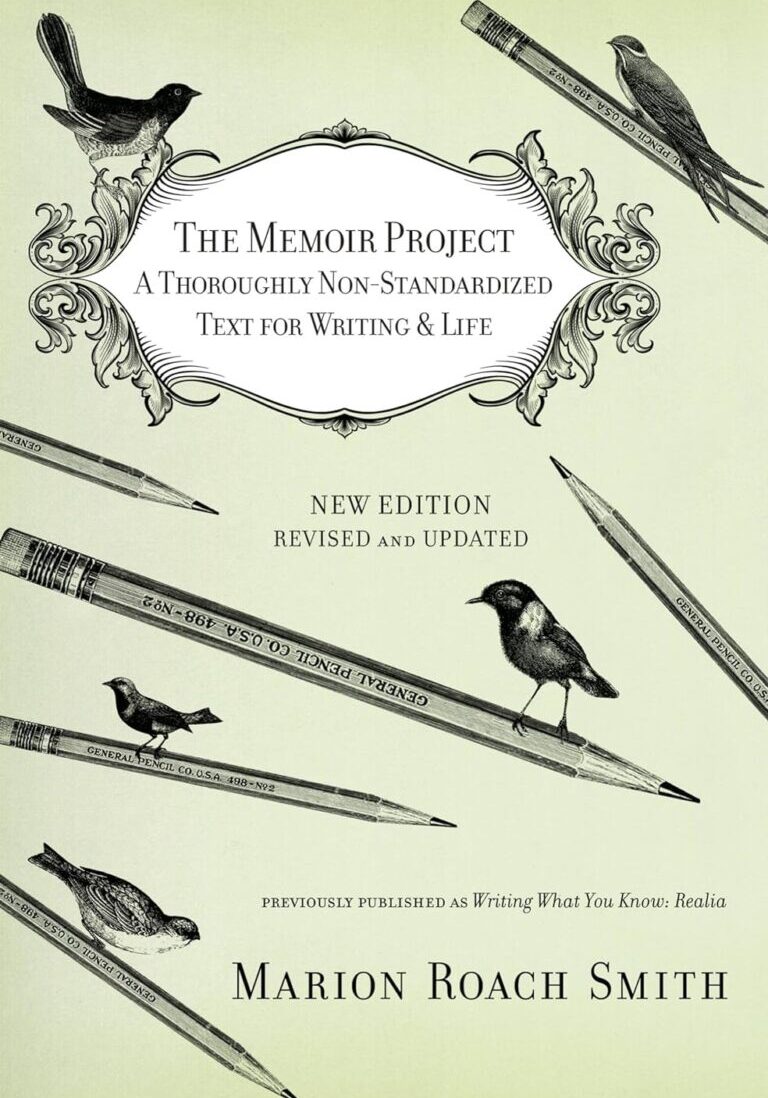
The Memoir Project – A Thoroughly Non-Standardized Text For Writing & Life by Marion Roach-Smith
Our Summary
Rational and literary at the same time, this slim tome is an extremely helpful exploration of how to turn life into memoir -- without boring the pants off the reader.
What I learned From It
A memoir is an illustration of a truth, a single facet of a life rather than a life story. Just because something happened doesn't make it interesting. Narrow the focus, find your voice and write in scenes until you have a vomit draft. Then the real work begins.
Mel L
[maxbutton id="1" url="https://amzn.to/3QUSpCa" ]
[maxbutton id="2" url="https://amzn.to/3Tc3kKT" ]
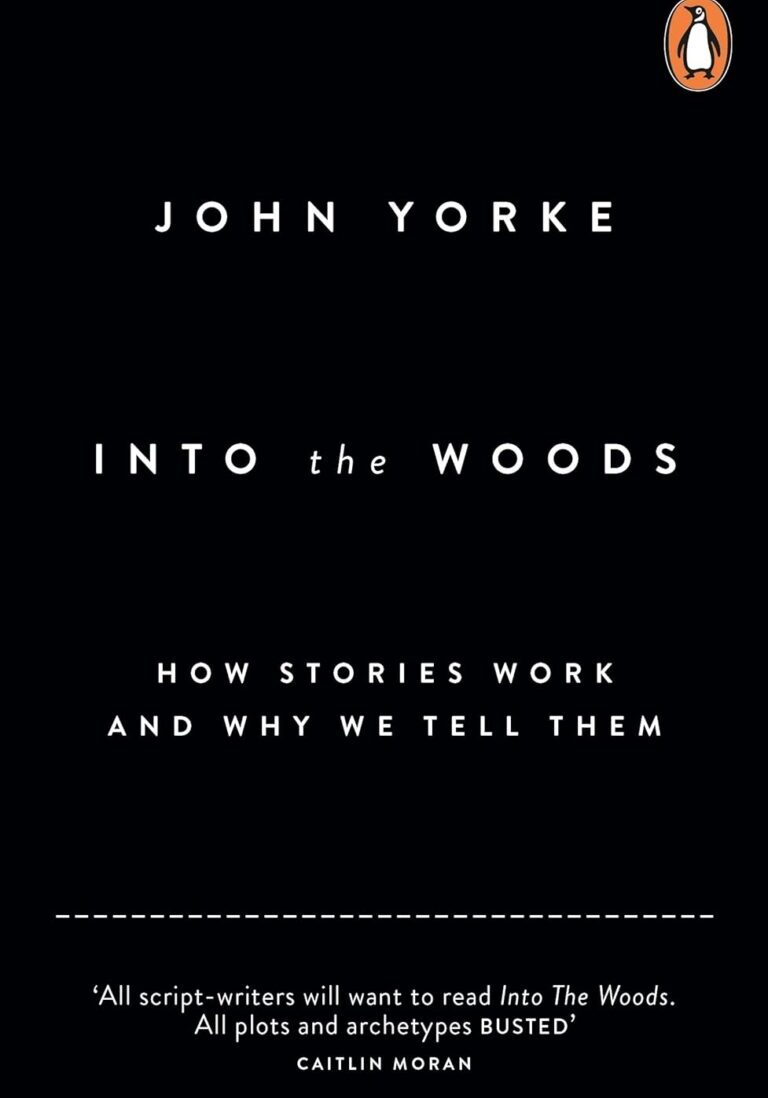
Into The Woods: How Stories Work And Why We Tell Them by John Yorke
Our Summary
A structural guide to storytelling, plotting, punch, flow step by step
What I learned From It
Although such a step by step guide seems a bit prescriptive and in theory has the potential to limit the creative flow, I found that following the principles helped prevent a story from being a shapeless mass and made it take shape and form. A bit like a block of marble being turned into Michelangelo's David (although perhaps my results have been less classically terrific). Or a diving board: a structure from which to soar.
AliG
[maxbutton id="1" url="https://amzn.to/46rL0Af" ]
[maxbutton id="2" url="https://amzn.to/3STqGVm" ]
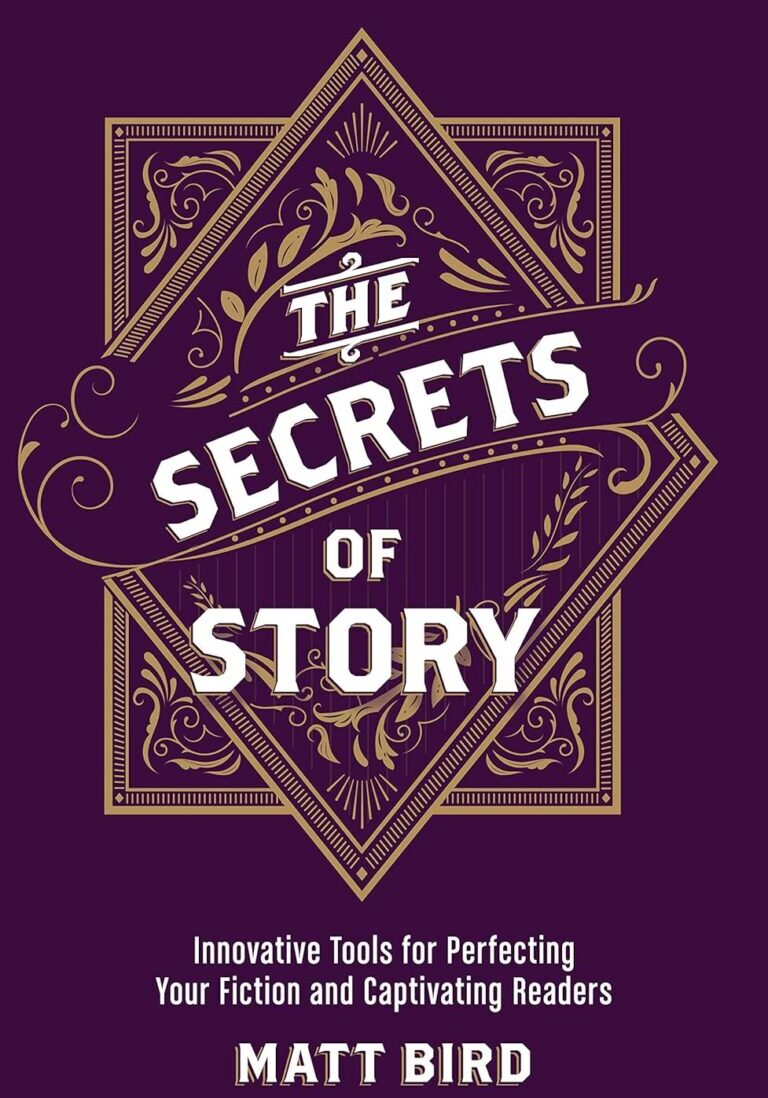
Secrets Of Story by Matt Bird
Our Summary
An award-winning screenwriter’s view of journeyman writing. How to hone in on and hone your story.
What I learned From It
Imagine your reader being on a long plane ride. Then imagine you are their seat mate. Are you the engaging stranger who entertains them with your sparkling wit and fascinating adventures? Do they want to take your name and keep in touch thereafter? Or are you the boring Uncle from Derry Girls that makes them consider opening the plane door and shoving you out?
Pamela Jo
[maxbutton id="1" url="https://amzn.to/3QUGwwp" ]
[maxbutton id="2" url="https://amzn.to/3GeiY0A" ]
Basic Membership Is Free.
Basic membership is sufficient for many writers.
Benefit from unlimited access to the Writing Lab for critiques using the Litopia® Method… Start your own writer’s blog on our powerful platform… And of course, maximum support from the oldest and friendliest community for writers on the ‘net.
Full Membership Is Only $149.95 For An Entire Year
Everything in Basic Membership plus unlimited access to all our writing seminars and unlimited access to our weekly live Writers’ Huddles for personal mentoring & coaching.
